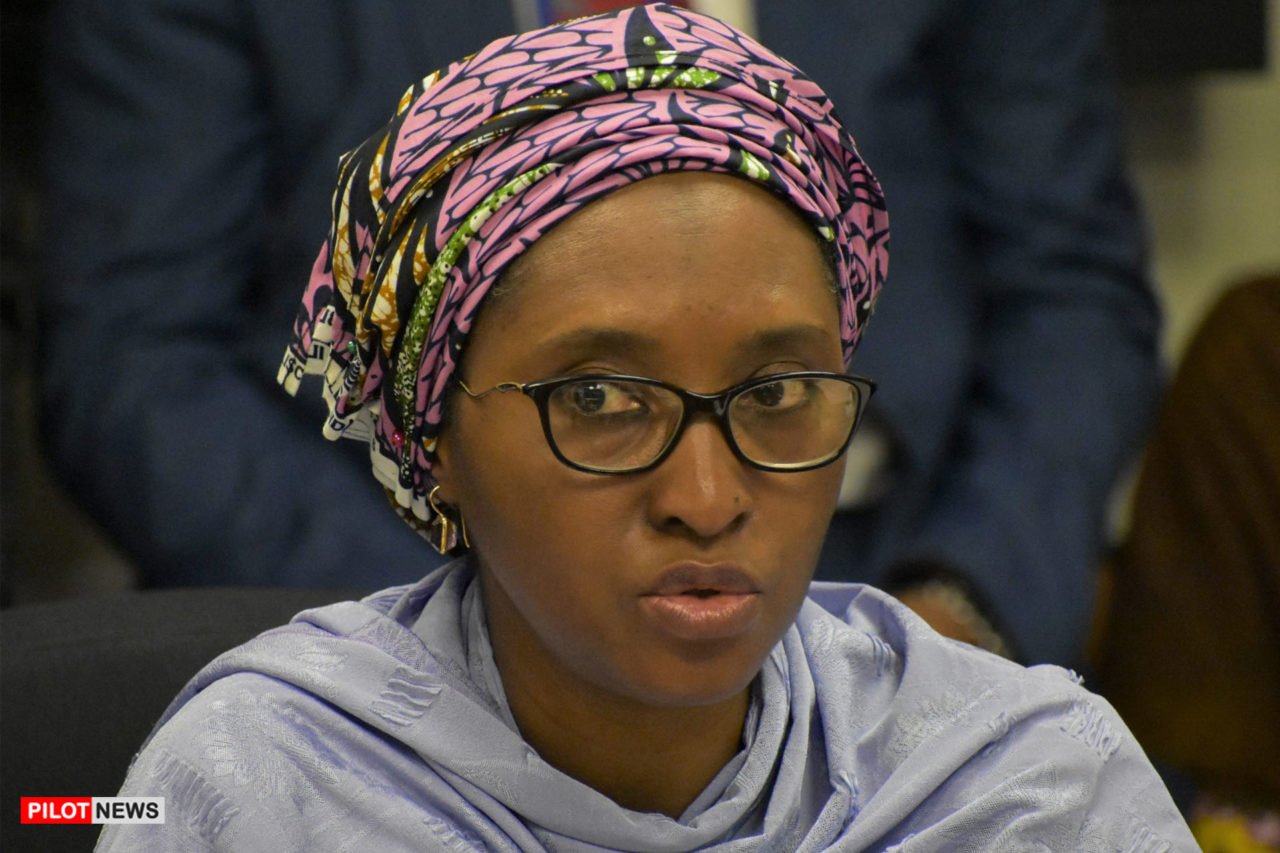The Minister of Finance, Budget and Planning, Mrs. Zainab Ahmed, has said the challenges posed by the COVID-19 pandemic and the drop in the oil price at the international market has made it inevitable for Nigeria to keep borrowing from external bodies.
The minister adds that Nigeria has been grappling with low revenue before the global health and economic challenges, saying that the challenges has put the country in a difficult situation. She says it has made it difficult for the government to meet up with its obligation.
The minister disclosed this at a webinar organized by the Nigerian Economic Summit Group, Fiscal Policy Roundtable, and Tax Investment and Competitiveness Policy Commission. The webinar was anchored by tax expert, Taiwo Oyedele, who is the Fiscal Policy Partner and West Africa Tax Leader at PricewaterhouseCooper.
The minister was represented by the Special Adviser to the President on Finance and Economic, Mrs. Sarah Alade, she says government is doing its best to made sure its revenue based is broadened and expenditure reduced.
She notes that if citizens are paying taxes and doing the right thing, this will go a long way in solving the country’s financial problems, especially raising revenues.
There has been concerns over the rising debt liabilities of the country from economic experts and prominent Nigerians.
Ahmed says, “We’ve had to grapple with low revenue, even before the pandemic. We had high debt, weak infrastructure base, low human capital and low revenue that is largely dependent on the foreign exchange earned from oil. So, there are many things we have loved to do that we cannot do.
“Due to the global economic slowdown and the revenue issues, what we are expecting is a GDP that would contract, in the best-case scenario, by about 4.4 per cent and in the worst-case scenario, it could be about eight per cent or more.
“We are in a very difficult situation but we are trying to manage that because if nothing is done, up to about 21 million jobs could also be affected by the impact of the pandemic. So, with all these statistics, we cannot overemphasise the importance of raising revenue.”
She adds that, in addressing the problem, government comes up with key fiscal measures that government could not but borrow to accomplish. She identifies the 12-month economic sustainability plan to mitigate the effect of COVID-19; measures to support the private sector, such as the implementation of the Finance Act 2020 which is to support the MSMEs and strategic industries that are affected by the pandemic.
In her words, “We also have the establishment of an N86bn intervention fund for health infrastructure; conversion of World Bank Regional disease surveillance system enhancement programme to support COVID-19 intervention in the states; accelerating infrastructural development; preparation of a Fiscal Stimulus Bill to provide legislative backing for the fiscal stimulus packages that we have; deregulation of the price of refined petroleum products – we know how important that is, given the amount of money that we spent in that area.
“We also have the adoption of financing plan for the power sector recovery programme; incentivising the use of up to N2tn of pension funds for roads and housing development, supporting and encouraging states to achieve state fiscal transparency and accountability, sustainability and other World Bank programme actions in order to access external support and we are collaborating with state governments on affordable mass housing.
“To achieve all these, we will have to keep mobilising external funding and seek debt relief. We continue to engage with the multilateral and donor agencies to access additional funding for crisis response, we seek moratorium from official partners for some of the loans that we have and support arrangement to secure commercial debt relief.
“If the revenue had performed, then we probably will not be seeking this much support from external sources, we know we cannot but keep working at generating more revenue so that the economy can be better for it.”
Other panelists at the webinar are the Chairman of the Nigerian Governors’ Forum, Kayode Fayemi; Chairman, FIRS/JTB, Muhammad Nami; IMF’s Senior Resident Representative for Nigeria, Jesmin Rahman; and the Country Director, Bill and Melinda Gates Foundation, Mr Paulin Basinga.

